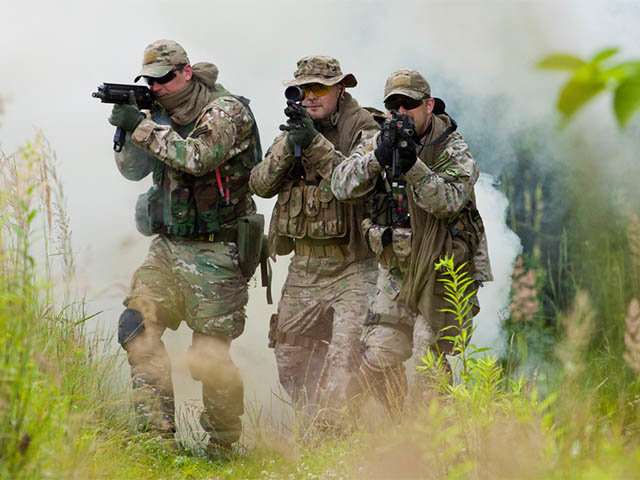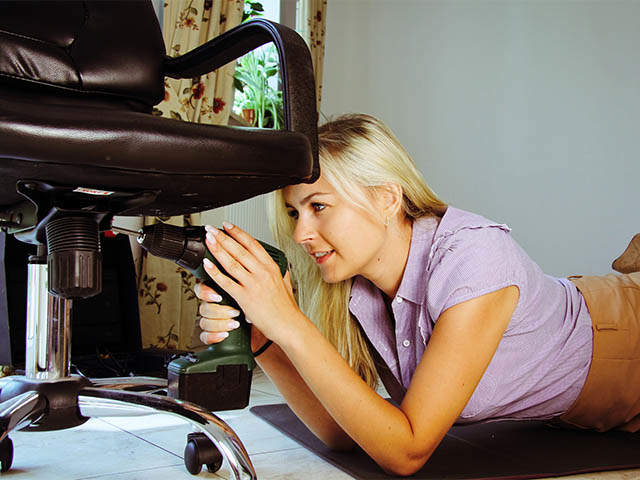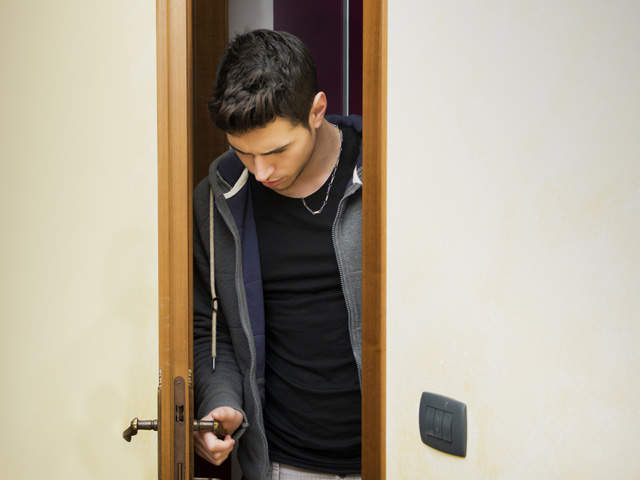Want you to do, let you do... (B1)
Verb + object + infinitive (or gerund) (388)
Slovesa s předmětem a infinitivem (nebo ING)
Na Landigo se dnes zaměříme na slovesa typu WANT, LET a SEE, která používáme s předmětem a infinitivem (want you to do, let you do, see you do...) nebo ING (see you doing).
Slovesa s předmětem a infinitivem – procvičování:
Další související lekce:
Blake told me to wait for him in front of the café.
|
He told me to wait there.
|
|
He wanted me to wait there.
|
|
He let me wait there.
|


Rozlišujeme několik typů sloves podle toho, jestli po nich používáme předmět + TO infinitiv nebo předmět + infinitiv bez TO; případně i další možnosti (bez předmětu, s ING...):
- Předmět + TO infinitiv:
tell you to do something
- Předmět + TO infinitiv/TO infinitiv:
want you to do somethingwant to do something
- Předmět + TO infinitiv/ING:
advise you to do somethingadvise doing something
- Předmět + infinitiv bez TO:
let you do something
- Předmět + infinitiv bez TO/Předmět + ING:
see you do somethingsee you doing something
Tell you to do
Slovesa, která používáme s předmětem + TO infinitivem:
| tell, invite, teach, enable | + you to do |
| warn, remind | |
| force, order, command, persuade, get (= persuade) |








Unfortunately, we couldn't persuade our friends to travel with us.
|
We couldn't persuade them to travel.
|
|
We couldn't get them to travel.
|
|
We couldn't force them to travel.
|


Dad taught Kevin to play chess.
|
He taught him playing to play it.
|


Want you to do, want to do
Slovesa, která používáme s předmětem + TO infinitivem nebo s TO infinitivem:
| want, ask, help, expect, beg, mean (= intend) | + you to do + to do |
| would like, would love, would hate, would prefer |








Would you prefer us to take a cab or walk?
|
Would you prefer us to take a cab?
|
|
Would you prefer to take a cab?
|


I'm expected to bring something small for each child.
|
I'm expected to bring presents.
|
|
They expect me to bring presents.
|


HELP můžeme použít s TO infinitivem nebo s infinitivem bez TO:
|
I'll help you to do it.
|
I'll help you do it.
|
|
I'll help to do it.
|
I'll help do it.
|
Did Jess help you to solve the problem? – Yes, she helped fix the chair.
|
She helped me to solve it.
|
She helped me solve it.
|
|
She helped to fix it.
|
He helped fix it.
|


Advise you to do, advise doing
Slovesa, která používáme s předmětem + TO infinitivem nebo s ING:
| advise, recommend, encourage, require | + you to do + doing |
| allow, permit | |
| forbid |








The doctor wouldn't recommend you to eat dairy.
|
He wouldn't recommend you to eat it.
|
|
He wouldn't recommend eating it.
|


What do you require us to do next, sir?
|
What do you require us to do?
|
| require us doing |


V trpném rodě používáme po ADVISE, RECOMMEND, ALLOW... TO infinitiv:
|
You're advised to do it.
|
|
You're recommended to do it.
|
Nikoliv: You're advised DOING it., You're recommended DOING it.
Porovnejte:
|
I advise you to do it.
|
|
I advise doing it.
|
|
You're advised to do it.
|
You aren't allowed to watch TV until you finish your homework.
|
You aren't allowed to watch it.
|
|
Mom doesn't allow you to watch it.
|


Let you do
Po LET, MAKE a HAVE (= nechat; požádat) používáme předmět + infinitiv bez TO:
|
Let's (= let us) have a look at what's inside.
|
Pojďme se podívat, co je uvnitř. |
|
The police made him open his bag.
|
Policie ho přiměla otevřít tašku. |
|
Have John help you. He knows how to deal with the police.
|
Nech Johna, ať ti pomůže. Ví, jak jednat s policií. |
Nikoliv: Let's to have..., Let's having...
V trpném rodě používáme po MAKE infinitiv s TO:
|
He was made to open his bag.
|
We'll have Danny go to the supermarket. Do you need something?
|
We'll have him go there.
|
|
We'll let him go there.
|
|
We'll make him go there.
|


I'm terrible at dancing. I'm just not made to dance.
|
I'm not made to dance.
|
|
You can't make me dance.
|


See you do, see you doing
Po SEE, HEAR a NOTICE používáme předmět + infinitiv bez TO nebo předmět + ING:
|
I saw him attack the woman.
|
I saw him attacking the woman.
|
|
Did you hear her scream?
|
Did you hear her screaming?
|
Infinitiv bez TO použijeme, když proběhl celý děj:
|
I saw him attack her. (= I saw the whole attack.)
|
ING použijeme, když mluvíme o části děje nebo když chceme zdůraznit průběh děje:
|
I saw him attacking her. (= He was in the middle of attacking her when I saw them.)
|
Více o SEE, HEAR... s infinitivem nebo ING v lekci: See him do, see him doing...
Did you hear your brother come home last night?
| Celý děj: |
Did you hear him come?
|
| Část děje: |
Did you hear him coming?
|


Lin was lucky the lifeguard noticed her drowning. She could have died!
| Část děje: |
He noticed her drown drowning.
|


I don't advise you to do, I advise you not to do...
Porovnejte zápor:
|
I don't advise you to sign it.
|
Nedoporučuju ti to podepsat. |
|
I advise you not to sign it.
|
Doporučuju ti, abys to nepodepsal. |
Nepoužíváme běžně: I advise you TO NOT sign it.
I warned you not to leave them here alone.
|
I warned you to not not to leave them alone.
|


Slovesa s předmětem a infinitivem (nebo ING) – nejdůležitější body:
| advise, recommend, encourage, require | + you to do + doing |
| allow, permit | |
| forbid |
| tell, invite, teach, enable | + you to do |
| warn, remind | |
| force, order, command, persuade, get |
| want, ask, help, expect, beg, mean | + you to do + to do |
| would like, would love, would hate, would prefer |
| let, make, have | + you do |
| see, hear, notice | + you to do + you doing |
Doporučujeme si procvičit slovesa s předmětem a infinitivem (nebo ING) v našich cvičeních.
